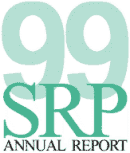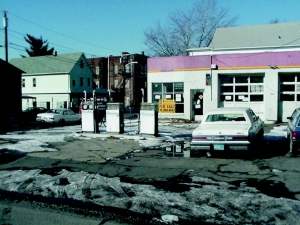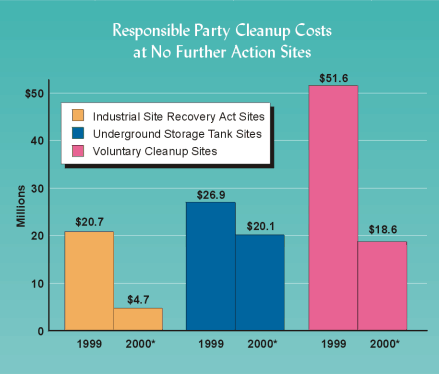|
I. Introduction (cont.)
Cost recovery has record year in 1999, direct billing declines with elimination of indirect chargesNJDEP collected more than $37.1 million from private parties in State Fiscal Year 1999 either through cost recovery actions for past publicly funded cleanup projects or through direct billing for Department oversight costs on current privately funded remedial activities. Cost recovery efforts resulted in a record $28.1 million recovered from responsible parties in State Fiscal Year 1999 for numerous past state cleanup actions. However, direct billing revenues of $9 million for State Fiscal Year 1999 represent a $4.9 million decrease from the previous year that was due to a statutory change eliminating the collection of indirect administrative charges. Cost RecoveryCost recovery efforts occur within NJDEP's Site Remediation Program and Division of Law in the Department of Law and Public Safety using the authority provided by the state's Spill Compensation and Control Act. The Site Remediation Program is responsible for negotiating with responsible parties to attempt to reach settlements of outstanding cleanup costs, thus avoiding costly litigation. The Site Remediation Program reached $487,000 in settlements with responsible parties for past NJDEP cleanup costs in State Fiscal Year 1999 and $150,000 in the first half of State Fiscal Year 2000. When an agreement cannot be reached, the Division of Law is requested to initiate legal action to effect an appropriate settlement or undertake litigation to recover the costs. The division's actions to recover NJDEP's costs in State Fiscal Year 1999 resulted in recovery of more than $27.6 million, an increase of 74 percent from the previous year. In the first six months of State Fiscal Year 2000, more than $3 million has been recovered. The largest settlement in State Fiscal Year 1999 involved the Chemical Control Superfund site in Elizabeth and brought $17.4 million back to the Department. Often these cost recovery actions also result in future savings to the Department as responsible parties agree to implement any remaining remedial work required to complete a site cleanup. Several settlements warrant individual mention and are presented below. Also, a recent settlement involving the Amoco Service Station Garfield City site was completed in early State Fiscal Year 2000 and is featured below.
LaPlace Chemical Company/Garfield Municipal WellsThe City of Garfield experienced contamination at one of its municipal well fields located near several industries. The City of Garfield sought Spill Fund reimbursement for the $2.2 million it spent on a water treatment system so that the impacted wells could continue to be used for public water supply. NJDEP began an investigation of several sites in the area in 1994 and determined that LaPlace Chemical Company was one of three companies responsible for such contamination. The Department then reached a settlement in which Garfield agreed to lower the amount of its claim and LaPlace reimbursed NJDEP for $850,000 of the total amount the state paid to the city. NJDEP will seek to recover the remainder of Garfield's damages against the other two responsible parties.Lipari Landfill (United States and NJDEP v. Rohm and Haas, et al.)During 1999, a consent decree resolving NJDEP's claims for response costs against Owens-Illinios was entered in federal district court. Pursuant to the decree, the Department received $515,000 from Owens-Illinois, the remaining defendant, in reimbursement of costs related to the cleanup of Lipari Landfill, a 16-acre closed landfill located in Gloucester County. For many years, the site retained the highest hazard ranking on USEPA's Superfund list, resulting in national notoriety. Entry of the decree brought to a close lengthy litigation that commenced in 1986 against Rohm and Haas Co., Owens-Illinois and several other defendants. As a result of the settlements in the matter, USEPA and NJDEP have recovered more than $120 million in cash and work for the capping of the landfill, treating ground water and removing and replacing contaminated lake, marsh and creek soils. Cleanup of the landfill and areas adjacent to it has been completed and has resulted in the reopening of Alcyon Lake for recreational use. Edgewood Village Mobile Home ParkThis state court suit was settled when a group of allegedly responsible parties and their insurers agreed to pay the state $476,836 as reimbursement for past NJDEP cleanup costs. The Department completed a cleanup of a 5,400-gallon kerosene spill that occurred in 1989 at a mobile home park in Middle Township, Cape May County in 1993. The allegedly responsible parties had begun the cleanup under NJDEP's direction, removing contaminated soil, but ran out of money before ground water contamination was addressed. Consequently, NJDEP took over the work operating a ground water extraction and treatment system from 1989 to 1993 and it continues to monitor this site. The state sued those it believed were responsible for the discharge resulting in last year's settlement.
|
| To report an environmental
incident impacting NJ, call the Toll-Free 24-Hour Hotline |
||
Contact DEP | Privacy Notice | Legal Statement & Disclaimers | Accessibility Statement |
||
Site Remediation Program: SRP
Home | About SRP |
Search | Help Copyright © State of New Jersey, 1996- |


